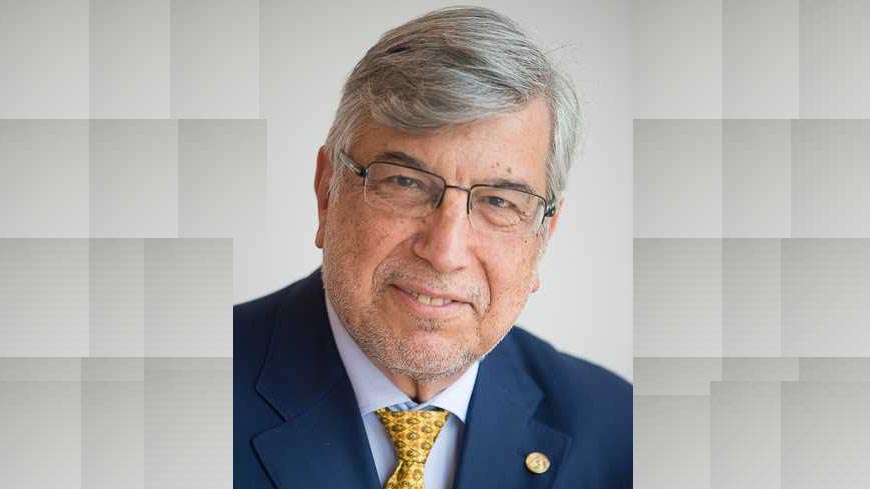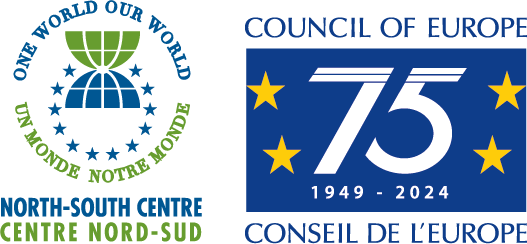The creation of the North-South Centre, in 1989, with the purpose of spreading the values of democracy, human rights and the rule of law beyond the European continent, constituted a major achievement of the Council of Europe. Since 1995, Greece has been actively participating in the North-South Centre’s successful work in the field of co-operation between the Council of Europe and the countries of the South, particularity the southern Mediterranean. This co-operation has enabled the Centre to develop a specific know-how, build-up major networks and become a reference point for a whole range of interlocutors, including both civil society and institutional representatives. It is indeed an undisputable fact that for over two decades, the Centre has been promoting dialogue between North and South, fostering solidarity and interdependence and developing regional activities geared to transmitting and promoting the values which are central to the Council of Europe’s mission. Its work provides therefore genuine added value.
However, we cannot ignore another indisputable fact, namely that after two decades, the Centre is bearing the brunt of the effects of multiple crises, which stem from difficulties experienced by most European countries and from the major geopolitical changes which have forcibly changed the Council of Europe’s framework for multilateral co-operation. In the context particularity of the Centre’s statutory mission, two crises have cast their heavy shadow on its activities: the economic crisis and the migration crisis.
As in almost every field of international cooperation nowadays, the economic crisis also affected the Centre, even endangering at times its very existence. When the Centre needed more than ever the solidarity of its members to be demonstrated in practice, Greece proved not only with words but also with deeds its unwavering commitment to the principles and values that the Centre echoes. As a result, we can now safely boast of the Centre’s remarkable adaptability to a new era, despite the economic difficulties the countries of this Organisation experience, with varying degrees.
The migration issue, on the other hand, was an open wound that could not be treated exclusively by the Centre, of course, but needed desperately its attention. Greece brought to the fore this extremely challenging issue, by submitting in 2015 the candidature of Ms Laura Pappa, President of the Greek NGO “METAdrasi” for the North-South Prize, with a view to benefit from the Centre’s know-how and networks, in a geographic area where migratory waves unravel and affect the European continent. Building upon the very fruitful document of Secretary General Jagland on migration, we must stress in concrete terms that, independently of whom may present the means to tackle the problem of migration, the Council of Europe, in its entirety, provides at least a satisfactory demarcation of its context: this Organization, with its broad legal culture, strongly standing on the legal acquis of the European Court of Human Rights and the European Convention for Human Rights, brings together not only the European Union countries, but also other European countries, with an equally significant role to play in coping with the roots of this phenomenon. The neighbourhood policy of the Strasbourg Organization and its ties with countries in the Mediterranean region can serve this cause, while the North–South Centre can facilitate the dialogue between countries of origin, transit and destination, through its respective networks, thus broadening its scope of interest.
In view of the aforementioned, a pragmatic approach should be considered concerning the future activities of the North-South Centre, which could be related to the Neighbourhood policy of the Council of Europe. There is no doubt that the Centre has built over the years a set of important, relevant and consistent activities. These activities should be maintained, further developed and fully integrated in the larger objectives of the Council of Europe as a whole. It is not coincidental that the 23rd edition of the Lisbon Forum, which took place in Lisbon on in June 2017, was entitled “Interconnecting People: managing migration, avoiding populism, building inclusive societies and reinforcing the North-South dialogue”, namely issues that are found at the epicentre of the activities of the Council of Europe. After all, the North-South Prize, the Lisbon Forum and the University of Youth and Development are today events widely recognized for their contribution to the promotion of human rights and democracy, and particularly relevant for the improvement of North-South relationships and mutual understanding at several levels, but above all that of civil society.
State–Parties to the North-South Centre are confronted with a paradox: they must face in a realistic way the said issues, while at the same time they are compelled to ponder with idealism, due precisely to the humanitarian nature of these issues. No one of course could argue that the Centre can by itself solve all those issues together. But, considering that a problem well put is half solved, it is clear that the Centre can play a preponderant role in this respect. And it is to this end, and with that compass in mind, that Greece remains strongly committed to the mission of the North South-Centre.
Prof. Stelios Perrakis
Ambassador
Permanent Representative of Greece
to the Council of Europe




